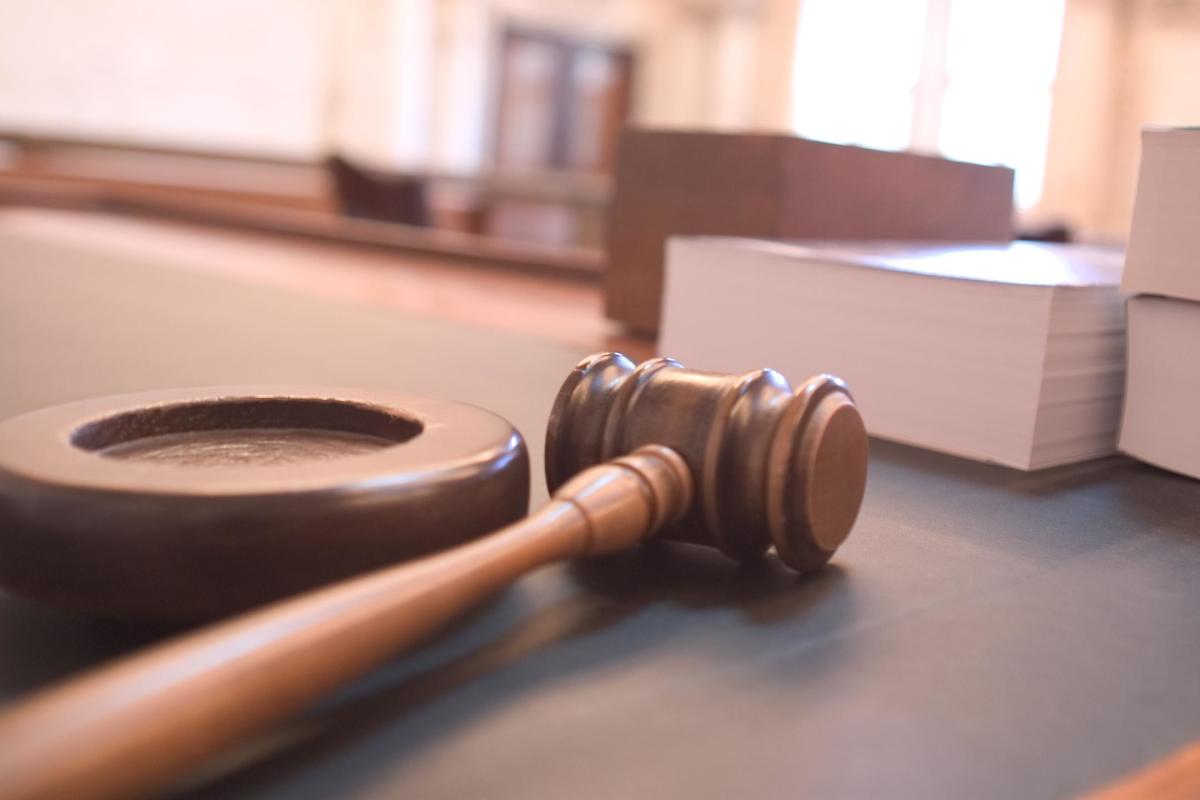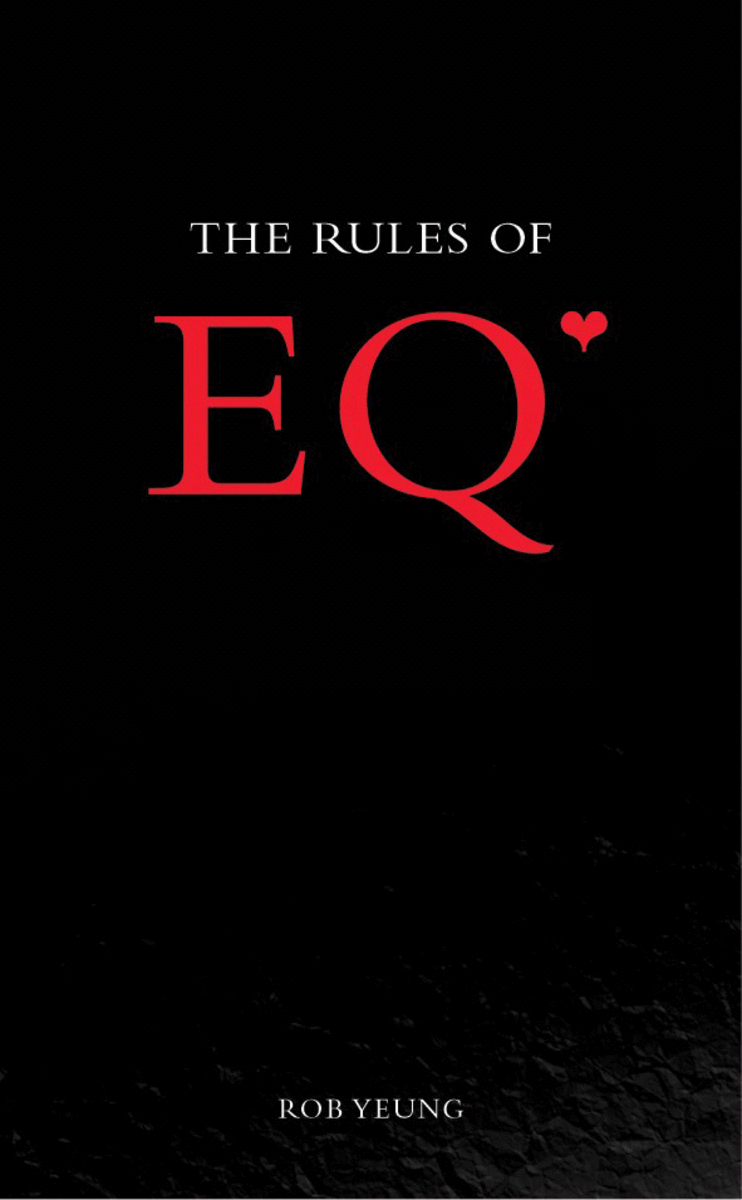If I Am Detained Or Placed In Custody, What Are My Rights? What If I Am Arrested?
What happens if I am placed under arrest?
If you are arrested, you will find yourself detained, until you either make bail or stand before the bench in a courtroom. You will not be able to travel, you will remain in custody until you are released by a bondsman or a judge. If you are released on bail, you will be given a date to present yourself to a Court. When there is a reasonable suspicion that you have engaged in some type of criminal activity, law enforcement will make an arrest, and make charges against you.
A Court can also have you arrested for failing to comply with a Court order. In a case like this you can be charged with contempt of court. A warrant will be issued from the bench, and you will be apprehended until you present yourself before the bench and come to some kind of agreement to secure your release.
What is "The Bench"?
The term "Bench" is a metonym. It is used to describe the judiciary branch of a courtroom. In layman's language it means a judge or judges. Some court proceedings are adjudicated by more than one judge. It is a word that is used to differentiate the difference between lawyers and judges.
Failure to appear before the Court on an agreed date can also lead to a warrant being issued. If there is a warrant for your arrest, any law enforcement officer could take you into custody.
Just because you are arrested, it does not mean you are guilty of committing a crime. It just means that someone is claiming that you have violated the law. You will retain the ability to present a defense. Law enforcement officials do not make determinations of guilt or innocence, only a court can make that decision, and that decision must follow the rules of Due Process.
Know the law, or else!

Do I have to be arrested to be detained?
There does not need to be a suspicion of criminal activity for law enforcement to detain you. If you suffer from mental illness or you are inebriated, and it is believed that you may pose a threat to yourself or others, you can be detained. Although it is not an arrest, it is still a reason to place you in custody. There may not be any criminal charges, but you will not be released until you have been evaluated by health-care professionals.
Another reason that you may be detained is if law enforcement has a reasonable suspicion that you have engaged in criminal activities. At this point you are a suspect, not arrested but legally held in custody. You can be held for a short period of time in these instances. To determine if in fact you have been arrested, ask the officer if you are free to leave. If you are not being detained, you may leave whenever you want.
Your Legal Rights When Arrested
If you have been arrested, the person conducting the arrest must:
- Inform you of the arrest and the charges made against you. Failure to do so is not an arrest, it is a kidnapping.
- The arresting officer must also inform you of your rights, known as your Miranda rights. Especially if the arresting officer asks more questions than your name and address.
- If you are being arrested for a warrant, you have the right to view the warrant itself. This is so you can determine if it is your name on the document and you can see the charges being made against you!
- Give you the opportunity to speak to an attorney. Once you request a lawyer, you are not obligated to answer any questions.
- Present you to a court of law so you may question the validity of your arrest.
Remain silent!

Dr. Lorandos explains what to do if you are arrested
Dont Talk to Police
What should I do while being arrested?
If a law enforcement agent has informed you that you are being placed under arrest, there are some things that will make sure you do not make matters worse.
First thing you should do is:
-
Be quiet! The officer will try to get you to reveal things that could be used against you. Once the decision is made to arrest you, there is no way you are going to talk your way out of it.
The second thing you should do is:
-
Keep your mouth shut! Any contradicting statements you make will result in further investigation. You will not convince the officer of your innocence, that is up to a judge.
The third thing is:
- Shut up! Speak to an attorney before saying anything. The only thing you should be saying is, "I want to speak to a lawyer." Never forget, anything you say, can, and will be used against you. Police officers are trained to build a rapport with you. They will try to convince you that they empathize with you. That they understand you, and you should be comfortable explaining everything to them. They do not empathize, nor are they your buddy that is trying to help you out!
Another piece of advice, cooperate with the officer.
- Do not resist the arrest. Any resistance could result in additional charges.
- Never attempt violence against a police officer. You could be severely injured if you assault a law enforcement official.
- Remember, the officer is only making sure that you appear before a judge in a court to answer to the charges. Even if you know that the charges are false, cooperate with the arrest. If you feel the need, you can file a complaint against the officer after you appear before the judge.
With an arrest warrant, the police can enter your home!
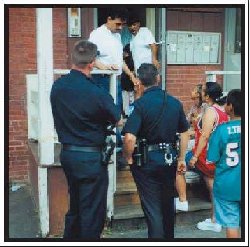
When there is a warrant, anyone can be arrested, anytime, anywhere!
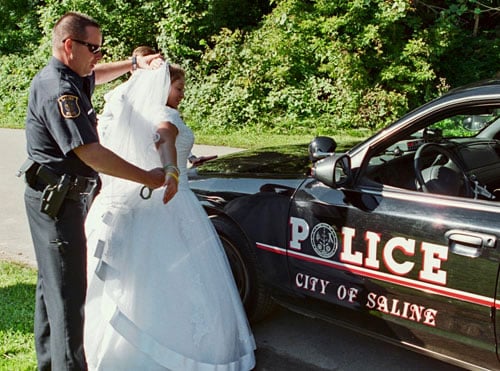
I know that there is a warrant for my arrest. What should I do?
The easiest way to resolve an outstanding warrant is to voluntarily appear before the court that issued the warrant. This will avoid an arrest, and the chance that you would be unable to make bail. Failure to make bail could result in having to be detained until the court is open. If you are arrested on a Friday night, you will be held until Monday morning.
If you choose to not consensually appear, you will be arrested eventually. Officers could show up at your door at anytime. Or, if you have any encounter, even an innocent one, with police, you will be taken into custody. A witness to a crime, or someone involved in a minor traffic accident that has an outstanding warrant will be arrested. Any instance of an officer running your name through their computer systems will make them aware of the order.
If they come knocking at the door to your home, they may legally conduct a search for you. Anything in plain sight that is deemed illegal could result in further criminal charges. The police would not need a search warrant; the "arrest warrant" grants them the authority to enter your dwelling.
Without having an outstanding warrant, you cannot be arrested in your home. Besides an arrest warrant, the only way you can be arrested in your home is if law enforcement has a reasonable suspicion (probable cause), to believe you are engaged in criminal activity. Apprehensions inside a home occur if the suspect is trying to flee/escape. Or if there is a suspicion that evidence is being destroyed, or there is harm being done to a person or property, an in home arrest is justified in these instances.
Cooperate!
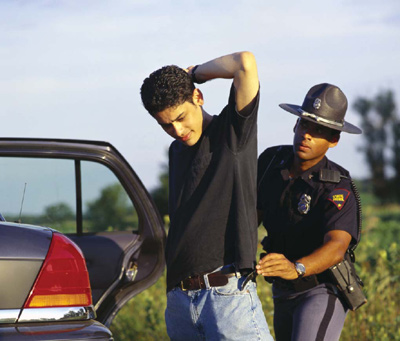
Probable Cause
How does an arrest warrant get issued?
One of the main reasons that an arrest warrant is issued is when an individual fails to appear for a court date. Depending on the severity of the crime, police may or may not come to your home to make an apprehension. If they do not come to your home, you will be taken into custody the next time you encounter law enforcement, and they run your name and address. If you are arrested for another charge while having an outstanding warrant, you may receive a more severe punishment based on the accumulation of the charges.
If evidence is brought before a Judge or a Court Magistrate by law enforcement implicating you in criminal activity, they can issue an arrest warrant to bring you into custody. The evidence must be convincing, also known as probable cause. Without a reasonable suspicion of criminal activity, no warrants should be given. A search warrant could also be issued to attempt to gather evidence as well. The areas to be searched will be identified. What is being searched for will also be on the document.
Once an arrest warrant is issued, it does not go away. There is no statute of limitations on an arrest warrant. When making the apprehension, the arresting officer does not need to have the warrant in their possession. You can be taken into custody anytime, anywhere; if there is an outstanding warrant for your arrest. The easiest way to avoid the arrest is to turn yourself in to a court during normal business hours.
How to Make a Citizen's Arrest
More on Citizen Arrest!
It is true that anyone can make an arrest. Caution must be taken before attempting citizens arrest. If all legal procedures are not followed, the individual making the arrest could be charged with a crime.
Law Enforcement should always be notified before making the apprehension. Maintaining contact with them is also advisable. There should be some threat that the suspect is in the process of harming another, otherwise, wait for the police to arrive. If the suspect resists, or flees, leave it to law enforcement.
The same probable cause rules exist for a citizen. Also, it must be felonious activity in order for a citizen to get involved. The crime should be either witnessed by the citizen or a very compelling reasonable suspicion that the suspect actually was involved in the crime. If a Citizens Arrest is conducted, the citizen is required to hand the suspect over to a law enforcement officer or a judge right away. Either of these agents are required to accept the suspect. The citizen will have to testify themselves to explain the detention!
Who can arrest me?
Basically, anyone can place you under arrest. This would include a private individual, which can conduct a citizens arrest. A citizens arrest is a rare occurrence and should only happen when the citizen witnesses the crime taking place and there are people in immediate danger.
Other than someone witnessing a major crime, private citizens should rely on law enforcement to do their jobs. Vigilantism is not supported by police officers. It could result in charges against the arresting citizen if not done legally.
As far as law enforcement, any officer can conduct an arrest. Even if the agent is not on duty at the time. County sheriffs, District Attorneys, Attorneys General, all have power of arrest. All of the myriad of Federal alphabet agency members (FBI, DHS, ICE, etc) also maintain the authority to arrest individuals.
Even parole and probation officers may take an individual into detention. Particularly if the individual has violated the terms of their probation/parole, or failed to follow a court order. This includes arrests without an arrest warrant having been issued. As long as there is a probable cause to suspect felony criminal activity, an arrest can be conducted.
All the rules explained previously must still be maintained if you are placed "under arrest". This is why a thorough knowledge of your rights is empirical in understanding your obligations during a confrontation with law enforcement.
You have the right to know what crime you are being charged with or questioned about!
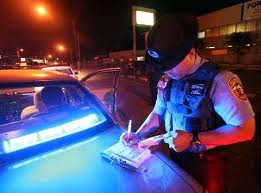
What about my date of birth?
Opinion:
I cannot answer this question honestly. I have no recollection of my birth. Therefore any answer I provide would be hearsay as I only know of it based on the statements of others.
Especially if there is a chance that perjury charges could be filed if I am not truthful.
Felony and Misdemeanor Criminal Charges
What is the difference between a felony and a misdemeanor arrest?
A felony charge is a more severe crime than a misdemeanor. If convicted of a felony, you could serve at least one year incarceration. While a misdemeanor conviction could result in a short incarceration and/ or a fine. In order to be arrested for a misdemeanor, a law enforcement officer must witness you committing the infraction. For a felony, no witness is necessary for an arrest. As long as there is sufficient evidence to implicate you, there may be an arrest.
On a misdemeanor offense, if you are under suspicion of guilt, you may be given a Citation. You will be required to endorse the citation. Your endorsement is an acknowledgement that you have received the document, and that you consent to appearing before a Court at a specific time on a certain date. Just because you endorse the citation does not mean you are confessing any guilt.
If you refuse to endorse the citation, you may be arrested. If you are suspected of committing a crime and refuse to identify your self properly to a Law Enforcement officer, this could also lead to an arrest. You are not required to have a paper form of identification in your possession at all times, but if asked your name, while being suspected of a crime, you must divulge the information truthfully. Knowledge of a social security number is not an obligation. You cannot be forced to remember such things. Having an address is not needed, there are many without a residence. Your name though, is something that should be remembered and given if asked, if there is a reasonable suspicion that you have been involved in criminal activity!
You will always be given the opportunity to defend yourself against any and all claims against you. This is not done at the time of arrest. Your defense is submitted to a court when you appear. When you appear in court, you have the right to have a lawyer present your defense for you. This is your choice. If you do not wish to be represented by an attorney, you can represent yourself (Pro Se). Whether represented by an attorney or not, you still maintain the right to participate in your defense. Gaining a general knowledge of the charges being made against you, and the proper procedures of the court will also be very beneficial. Understaning the proceedings and why you are being charged with a crime makes it easier to present a proper defense.
Miranda Rights
- You have the right to remain silent.
- If you do say anything, what you say can be used against you in a court of law.
- You have the right to consult with a lawyer and have that lawyer present during any questioning.
- If you cannot afford a lawyer, one will be appointed for you if you so desire.
- If you choose to talk to the police officer, you have the right to stop the interview at any time.
Miranda Warnings (Miranda Rights)
What are Miranda Rights? What if the arresting officer did not read me my rights?
Miranda Rights have emanated through the Supreme Court decision in the case known as Miranda v. Arizona. The only time that these rights are disclosed to a suspect is if the officer is going to ask you questions.
If law enforcement failed to tell you of your rights, than a lawyer can present a motion to suppress anything you have said to the officers. This means that even if you give a full confession after being detained, the prosecution could not use these statements during your trial.
The belief that your Miranda Rights must be revealed during any arrest is false! Your case will still proceed, especially if the police have more evidence than just your statements. Also, if you voluntarily speak to the officers without them questioning you, more than likely, these statements can be used against you. Unless you are being detained, you are freely speaking to any officer you meet, with no obligation on their part to tell you of your rights.
This is why rule number one when confronted by a law enforcement agent is KEEP YOUR MOUTH SHUT!
How To Find a Good Lawyer To Help You
When should I ask for a lawyer?
You can request the presence of an attorney as soon as a law enforcement agent begins questioning you. There is no obligation to say anything without legal consultation. As soon as you ask for a lawyer, the police should stop interrogating you.
If you have been placed under arrest, it is advisable to immediately ask for legal counsel. This is especially true if the crime you are being charged with could result in a prison sentence.
A lawyer can advise you on what information should be divulged to law enforcement. This ensures that your statements will not be detrimental to your defense. A lawyer can also offer advice to you and your family on how the bail process works. This could help you in acquiring your freedom prior to your trial.
You have the right to have a lawyer present during questioning.
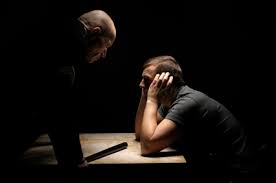
Once I request a lawyer, can law enforcement still question me?
You can agree to waive your right to remain silent. If you do not waive this right, and you have asked for a lawyer, all interrogations should cease. If you continue to speak after the request for an attorney, you may have unwillingly waived your right. Your responses could be used as evidence against you.
At anytime during questioning, you can invoke your Miranda rights. As soon as these rights are invoked, you should cease all discussions.
Besides questions, you may also be asked to provide other forms of evidence. Blood alcohol levels, DNA, etc, can be gathered and used against you. You may invoke your rights before submitting to these tests.
Educate yourself!

Summary
It is your responsibility to know the law. By researching your rights and how they are applicable to the law, you have a better chance of not making a mistake which could lead to more trouble.
Of course, the easiest way to avoid confrontations with law enforcement is to not engage in criminal behaviour. If you are engaged in these types of activities, there is a good chance that at some time, you will be confronted with police. The best advice available is to not break the law to begin with.
Hopefully, you have found this information useful and informative. Feel free to share it on your social media sites. If you found it useful, perhaps your friends will as well.
Thank you for stopping by. There is a comment section below if you have anything you would like to add to this discussion.
Disclaimer!
The materials available on this hub are for informational purposes only and not for the purpose of providing legal advice. You should contact your attorney to obtain advice with respect to any particular issue or problem. All materiel are copyrighted properties of the author and may not be used without permission of the author.



